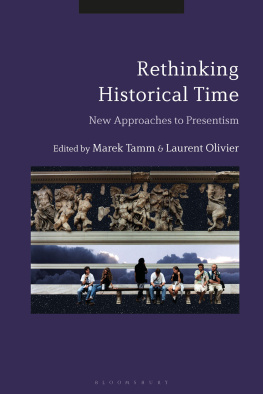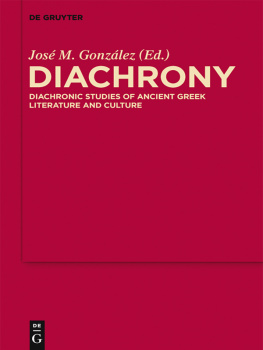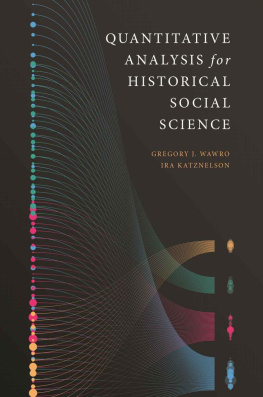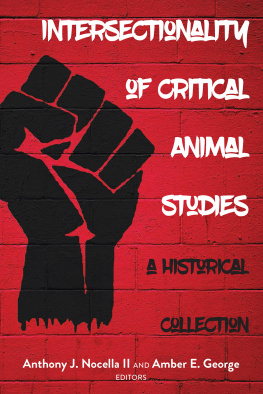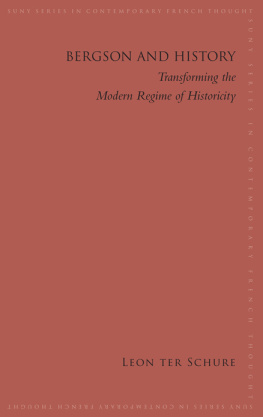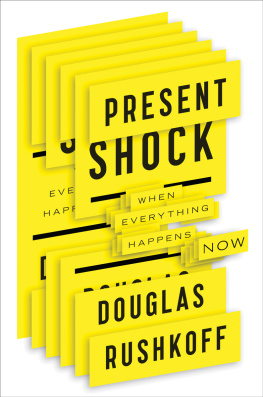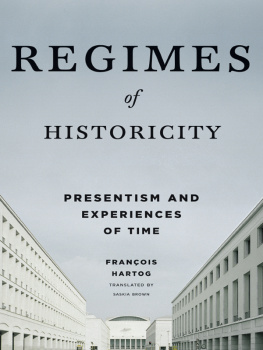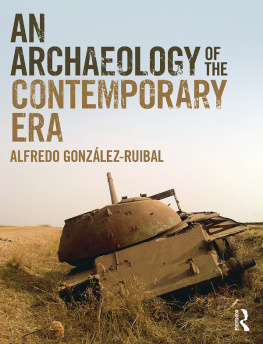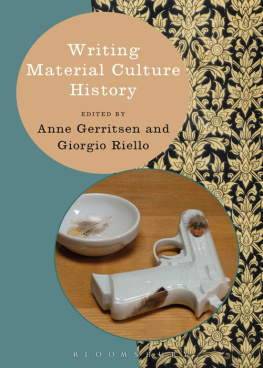
Rethinking Historical Time

Contents
Aleida Assmann is Professor Emerita of English and Literary Studies at the University of Constance. Her visiting professorships include Rice University in Houston (2000), Princeton University (2001), Yale University (2002, 2003, 2005) and the University of Chicago (2007), among others. The subjects of her early works are English literature and the history of literary communication; since the 1990s her specific interests have centred around the history of German memory since 1945, the role of generations in literature and society, and theories of memory. Professor Assmann is a member of the Academies of Science in Brandenburg, Gttingen and Austria, and she received an honorary doctorate from the Faculty of Theology at the University of Oslo in 2008. Her recent book publications include Der europische Traum: Vier Lehren aus der Geschichte (2018), Menschenrechte und Menschenpflichten: Schlsselbegriffe fr eine humane Gesellschaft (2018), Im Dickicht der Zeichen (2015), Ist die Zeit aus den Fugen? Aufstieg und Fall des Zeitregimes der Moderne (2013) and Das neue Unbehagen an der Erinnerungskultur (2013).
Torgeir Rinke Bangstad is a postdoctoral researcher at UiT The Arctic University of Norway. He earned his PhD degree at the Norwegian University of Science and Technology in Trondheim where he wrote his doctoral dissertation on the historic preservation of industrial heritage in three former industrial communities in Northwestern Europe. He is co-editor with ra Ptursdttir of a forthcoming volume for Routledge that seeks to reorient thinking in critical heritage studies in line with the ontological turn and the turn to things. He has contributed to the anthology Ruin Memories: Materialities, Aesthetics and the Archaeology of the Recent Past (2014) and is a member of the research project Object Matters: Archaeology and Heritage in the 21st Century. He is currently investigating the materiality and memory of a reconstruction house that will be re-erected at Norsk Folkemuseum in 2019. His main research interests lie within the fields of heritage studies, museology, memory studies and theories of history.
Shannon Lee Dawdy is Professor of Anthropology and of Social Sciences at the University of Chicago. She is an anthropologist whose fieldwork combines archaeological, archival and ethnographic methods with a regional focus on the United States, the Caribbean and Mexico. The central thread running through her work concerns how landscapes and material objects mediate human relationships, whether this means an examination of the historical ecologies of capitalism, or the emotional trajectories of those who lost their intimate object worlds to Hurricane Katrina. Her first book, Building the Devils Empire (2008), offers rogue colonialism to explain how French New Orleans, and many colonies like it, functioned outside state controls, developing a political economy loosely moored to metropolitan interests. Her recent book, Patina: A Profane Archaeology (2016), investigates nostalgic practices surrounding antiques, heirlooms, historic houses and ruins. It argues that these practices provide a means of critiquing the capitalist present and of bonding people together through a type of kinship. Her current research focuses on rapidly changing death practices in the United States, particularly around disposition and transformation of the body.
Caitlin DeSilvey is Associate Professor of Cultural Geography at the University of Exeters Penryn Campus, where she has been employed since 2007. Her research explores the cultural significance of material and environmental change, with a particular focus on heritage contexts. She has worked closely with environmental scientists, artists, archaeologists, photographers and heritage practitioners on a range of interdisciplinary projects, supported by funding from UK research councils, the Royal Geographical Society, the Norwegian Research Council and the European Social Fund. She is currently co-investigator on the AHRC-funded Heritage Futures award, a four-year project that works with eighteen non-academic partner organizations to support the development of transformative approaches across a range of heritage-related domains. She co-founded Exeters Centre for Environmental Arts and Humanities and directs the Creative Exchange art-science programme at the Environment and Sustainability Institute. Recent publications include Anticipatory History (2011, with Simon Naylor and Colin Sackett), Visible Mending (2013, with Steven Bond and James R. Ryan) and Curated Decay: Heritage Beyond Saving (2017).
Victoria Fareld is Associate Professor of Intellectual History at Stockholm University. She earned her PhD in 2007 with a dissertation about the concepts of recognition, vulnerability and exposure in contemporary political philosophy in light of Hegels philosophy and German Idealism. She was a visiting scholar at The New School for Social Research during 20052006, at the Institut fr Philosophie, Potsdam Universitt and at Sophiapol, Universit de Paris-X Nanterre in 2008; fellow researcher at University of Gothenburg during 20092012; and co-director of Studies at the Centre for European Studies, University of Gothenburg during 20112012. Her current research focuses on the theory of history, historical time, ethics, memory and historical justice. Among her recent publications are History, Justice and the Time of the Imprescriptible, in The Ethos of History (eds S. Helgesson and J. Svenungsson, 2018); (In) Between the Living and the Dead: New Perspectives on Time in History, History Compass 14:9 (2016); and Ressentiment as Moral Imperative: Jean Amrys Nietzschean Revaluation of Victim Morality, in Re-Thinking Ressentiment (eds M. Gallagher and J. Riou, 2016).
Anne Fuchs is Director and Professor of the University College Dublin (UCD) Humanities Institute. She studied German and English Literature at the University of Konstanz, Trinity College Dublin and the Freie Universitt Berlin. Between 1992 and 2010 she was Lecturer, Senior Lecturer and then Professor of Modern German Literature and Culture at UCD. In 2005/6 she received an IRCHSS Senior Research Fellowship, which enabled her to carry out research for her monograph Phantoms of War in Contemporary German Literature, Films and Discourse (2008). The award of a UCD Senior Fellowship in 2010 helped her to complete her monograph, After the Dresden Bombing: Pathways of Memory, 1945 to the Present (2012). Her sixth monograph, Precarious Times: Temporality and History in Modern German Culture, is due to be published by Cornell University Press in 2019. In 2011 she accepted the Chair and Professorship of German at the University of St Andrews before moving to the University of Warwick in January 2012, where she was Professor of German Studies until September 2016. She is a Member of the Royal Irish Academy and in 2014 she was elected a Fellow of the British Academy.
Johannes Grave is Professor of Art History and Historical Image Studies at Bielefeld University. He received his PhD at Jena University, was fellow at Basel University (NCCR Iconic Criticism) and deputy director of the Centre allemand dhistoire de lart in Paris. His research focuses on Early Renaissance painting, art around 1800, theories of the image and the temporality of image perception. His publications include
Next page
